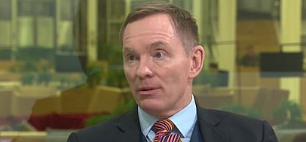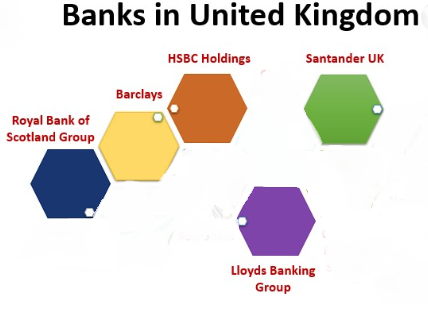
CBIl scheme stalled by banks who wants 12 per cent interest


MPs and firms have criticised banks for insisting on personal guarantees to issue government-backed emergency loans to business owners. The new requirement loads most of the risk that the loan goes bad on the business owner, rather than the banks, which means the banks can go after the personal property of the owner of a firm if their business goes under and they cannot afford to pay off the debt, although their main home is protected but could go after other assets.
The Coronavirus business interruption loans ( CBIL) are a key plank of the government’s package to protect businesses throughout the ongoing shutdown.
The British Business Bank, the government body that is overseeing the scheme told lenders they have discretion over the security they require. According to UK Finance, formerly the British Bankers Association, the scheme should offer loans of up to £5m, where the government promises to cover 80 per cent of losses if the money is not repaid, but lenders may require security for the facility.
Barclays has told customers they will be required to sign personal guarantees to access the government-supported emergency finance. HSBC said it will require a form of personal guarantee for loans over £100, 000.
Royal Bank Of Scotland, which also owns NatWest, has confirmed it will offer business interruption loans without asking business owners for personal guarantees- proving that more generous terms can be offered.
Business owners and MPs say that it is not fair when the firms themselves are only seeking loans because of emergency measures introduced by the government. In the past when banks were in trouble they tend to forget they were rescued by taxpayer’s money.
Chancellor’s coronavirus rescue package for SMEs “ yet again, it is the banks and not the businesses who will receive the funds to help SMEs”.
The All-Party Parliamentary Group on Fair Business Banking tweeted: “ There is confusion about CBILS. Treasury must issue clear guidance on parameters and not allow security at the “ discretion of the lender” to muddy the waters. Unprecedented times require emergency funding. Keep it simple and no personal guarantees”.
The coronavirus Business interruption Loan Scheme ( CBILS) is available through more than 40 accredited lenders across the UK.
The businesses have to find a lender as they have the authority to decide whether to offer you finance. If it can do so normal commercial terms without having to make use of the scheme it will. If one lender turns you down you can still approach other lenders within the scheme. All Uk based on its business activity with an annual turnover of no more than £45 million are eligible to access the CBILS, but the lender would consider viable, were it not for the COVID-198 pandemic, beliefs will enable you to trade out of any short-term to medium-term difficulty.
Businesses from any sector can apply except the following: Banks and building societies, Insurers and reinsurers ( but not insurance brokers), Public sector organisations including state-funded primary and secondary schools, Employer, professional, religious or political membership organisations, Trade Unions.
The Labour MP Chris Bryant has accused UK banks of taking advantage of the surge in demand for emergency loans, despite interest rate cuts and major government-backed borrowing schemes for struggling businesses. “ The Base rate at the Bank of England is now 0.1 per cent but banks like Barclays are charging anything between 7 per cent and 12 per cent. Banks are taking minimal risks and charging exorbitant rates. It looks like profiteering to me” Bryant said.
Last week, the Chancellor, Rishi Sunak announced state-backed loans of at least $330bn for UK companies including through an extended coronavirus business interruption loan scheme that offers interest-free loans of up to £5m for 12 months and banks seems to be dragging their feet with red tape.
In a Joint letter Sunak, Andrew Bailey, the Bank of England governor, and Christopher Woolard, the interim head of the Financial Conduct Authority, told UK banking chiefs “ all action necessary to make sure those measures were benefiting households and businesses as planned. This will require a willingness to maintain and extend lending despite the uncertain economic conditions. We must ensure that firms whose business models that do not qualify for the government scheme would be offered loans at normal rates”.
Barclays, however, said: “Our interest rates are in line with industry standards.”
Banks were urged to keep lending even to firms that are in breach of loan terms and are potentially at risk of going bust due to the coronavirus outbreak. The latest intervention by Bank of England and the Financial Conduct Authority come as banks are under fire for insisting on personal guarantees before they issue Government –backed emergency loans.
The Prudential Regulation Authority overseen by banks, the Financial Reporting Council and the FCA noted today that the authorities have acted strongly to ensure lenders have the tools they need to get through the crisis.
“Noting these actions The FCA, FRC AND FRA strongly encourage lenders and other parties to take into account these circumstances in responding the potential breaches of covenants arising directly from the Covid-19 Pandemic and its consequences, given the common goal that financial system should be a source of strength for the real economy during this challenging period.”
The assumption is that the hit to the economy from the virus will be huge, but it should be short lived. And that bounce back afterwards will come quicker if businesses and individuals are still afloat once the bug is beaten.
